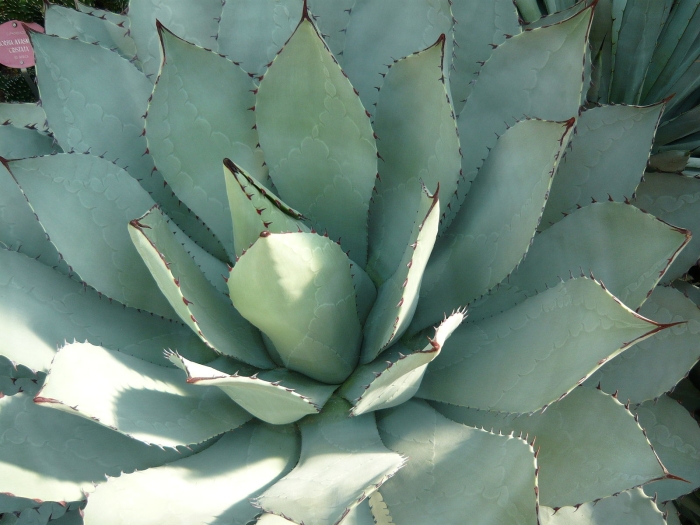Cabbage Head Agave
(Agave parrasana)
Cabbage Head Agave (Agave parrasana)
/
/

Cillas
CC BY-SA 4.0
Image By:
Cillas
Recorded By:
Copyright:
CC BY-SA 4.0
Copyright Notice:
Photo by: Cillas | License Type: CC BY-SA 4.0 | License URL: https://creativecommons.org/licenses/by/3.0 | Uploader: Cillas | Publisher: Wikimedia Commons |




























Estimated Native Range
Summary
Agave parrasana, commonly known as Cabbage Head Agave, is an evergreen succulent native to the high-altitude, semi-arid regions of Northeast Mexico. It forms a dense, symmetrical rosette of fleshy, thorn-tipped, blue-green leaves that can reach up to 60 cm in height and width. The leaves are adorned with contrasting red thorns, adding to its ornamental appeal. Mature plants may produce a dramatic flower spike up to 6 meters tall, with flowers that open red and turn yellow, signaling the end of the rosette’s life cycle. However, the plant can propagate through offsets.
Cabbage Head Agave is valued for its architectural form and is often used in xeriscaping, rock gardens, and as a focal point in drought-tolerant landscapes. It is hardy to −12 °C (10 °F), making it suitable for outdoor cultivation in sheltered environments. It has earned the Royal Horticultural Society’s Award of Garden Merit, indicating its excellence for garden use. This agave prefers full sun exposure and thrives in well-draining soils, requiring minimal water once established. It is suitable for USDA hardiness zones 7–10. Gardeners should be aware of potential issues such as scale insects and chlorosis due to magnesium deficiency. To prevent these problems, maintain proper soil conditions and monitor for pests.CC BY-SA 4.0
Cabbage Head Agave is valued for its architectural form and is often used in xeriscaping, rock gardens, and as a focal point in drought-tolerant landscapes. It is hardy to −12 °C (10 °F), making it suitable for outdoor cultivation in sheltered environments. It has earned the Royal Horticultural Society’s Award of Garden Merit, indicating its excellence for garden use. This agave prefers full sun exposure and thrives in well-draining soils, requiring minimal water once established. It is suitable for USDA hardiness zones 7–10. Gardeners should be aware of potential issues such as scale insects and chlorosis due to magnesium deficiency. To prevent these problems, maintain proper soil conditions and monitor for pests.CC BY-SA 4.0
Plant Description
- Plant Type: Succulent
- Height: 1-2 feet
- Width: 1-2 feet
- Growth Rate: Slow
- Flower Color: Yellow
- Flowering Season: Summer, Fall
- Leaf Retention: Evergreen
Growth Requirements
- Sun: Full Sun
- Water: Very Low, Low
- Drainage: Fast
Common Uses
Bee Garden, Bird Garden, Drought Tolerant, Fire Resistant, Hummingbird Garden, Low Maintenance, Potted Plant, Rabbit Resistant, Rock Garden, Street Planting
Natural Habitat
High-altitude, semi-arid regions of Northeast Mexico
Other Names
Common Names: Cabbage Head Century Plant
Scientific Names: , Agave parrasana, Agave wislizeni subsp. parrasana,
GBIF Accepted Name: Agave parrasana A.Berger